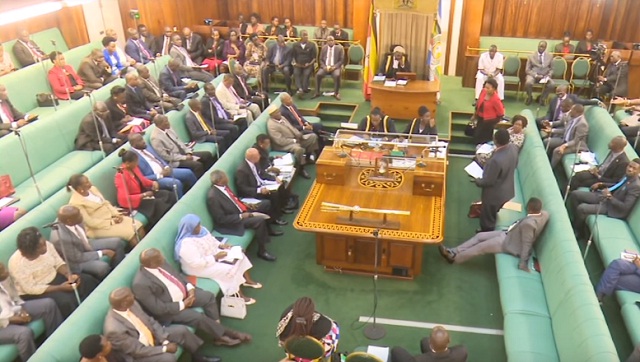
Hopefully it will reactivate the stalled process to get a salary review commission which has been long overdue
COMMENT | Cissy Kagaba | We are pleased with the decision of the Supreme Court to uphold the 2016 ruling of the Constitutional Court decision that impugned Section 5 of the Parliament (Remuneration of Members) Act, 1981. This section, together with Article 85 of the Constitution of Uganda, 1995, (as amended) had made becoming a Parliamentarian a form of extractive leadership .
The first order of every new Parliament from as far back has always been to discuss their pay and determine the value of a few allowances here and there and then a plan to pay off the debts incurred in the quest to become a parliamentarian. While this is not true for all MPs, it is known that becoming a member of the August House is an expensive venture and whoever has tried and succeeded, or failed, has been left a few million shillings poorer. That is money that is often times recouped from emoluments and other avenues.
We hope this decision will make Parliament a little less attractive to join especially by those who join to make a quick buck. We also hope that this will reactivate the stalled process to get a salary review commission; a process has been long overdue.
However, despite the Court decision one has to be mindful of the practicability of the ruling considering that some members of the Executive are also members of Parliament. I am not saying they are going to do the unthinkable in regards to exploiting the provision of having Cabinet generate a substantive Bill or Motion, but then again, what stops them from harboring a thought or two? The analogy of a hyena collecting taxes from the market may come into play.
Every time the emoluments for Members of Parliament have been discussed, the House is united; ruling, independent, opposition MPs, front and backbenchers alike. So it will not come as a surprise if this provision was exploited to reward the MPs for a vote about to go down, or also as a threat for one in which people voted wrongly, after all, the Executive must first give the blessing before Parliament proceeds.
Not a long while back, Members of Parliament were reported in the media as having asked that the taxpayer foot their Bill for the Over The Top (OTT) , a tax they passed so as to restrict the number of people accessing social media. The same MPs had increased their allowances and those for the Parliamentary staff by 39% and 15% respectively a few months ago to, among other things, cover the increasing cost of living and the increasing prices at the fuel pump.
There is nothing wrong with matching up to the increasing cost of living, but are the ordinary Ugandans, the tax payers living in a different economy from the one the MPs are living in? Why should MPs get a match up when the rest are left poorer?
Our Honorable MPs have always been creative at coming up with a litany of excuses to cushion their lives and line their pockets with cash at the expense of the tax payer and we are certain they will come up with an ingenious plan to ensure the status quo is maintained.
Our appeal is steps ought to be taken to ensure that MPs do not come up with means to charge extra costs on the Consolidated Fund as stipulated in Article 93 of the Constitution of Uganda as a means to make up for what could have been lost by their inability to determine their next pay. We also call upon the Executive to put in place mechanisms to have a salary review conducted for all those who draw emoluments from the consolidated fund such that those intending to go to Parliament know what they are getting into.
This transparency will possibly aid the MPs more as their voters will learn that the MPs are not as wealthy as they are believed to be and possibly have them stop looking at the MPs as the solvers of all the problems in the constituency. What we yearn for as citizens is “Constructive Leadership”; a leadership that seeks to gather and put public resources to the pursuit of the common good of all people.
****
Cissy Kagaba is the executive director of the Anti-Corruption Coalition Uganda
 The Independent Uganda: You get the Truth we Pay the Price
The Independent Uganda: You get the Truth we Pay the Price


